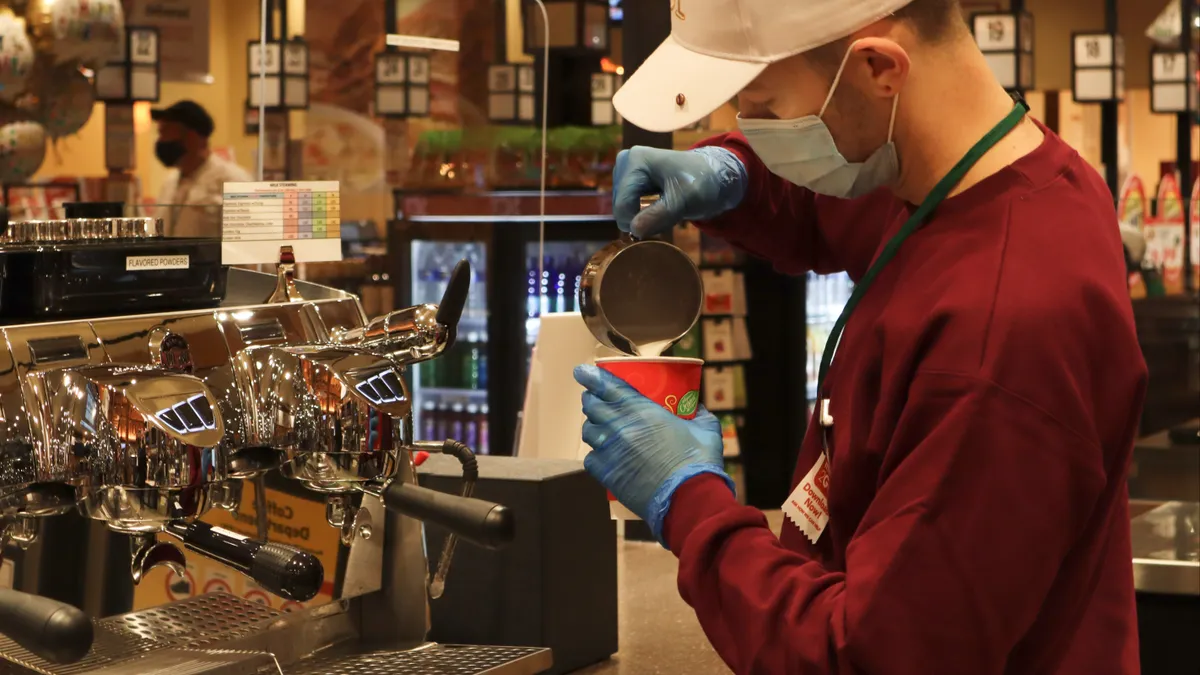Dive Brief:
- Those able to consistently practice social distancing at work have a significantly lower risk of anxiety or depression, according to a study published in Occupational Environmental Medicine Oct. 30. The study investigated COVID-19 infection and exposure rates among grocery employees, as well as their mental health during the pandemic.
- Researchers from Harvard, Boston University and other organizations studied 104 employees of a Boston grocery store. Most of those who reported mild anxiety said they were not able to consistently practice social distancing at work, while most of those who weren’t anxious were able to do so. Likewise, those deemed mildly depressed were less likely to consistently practice social distancing at work and more likely to travel to and from work on public transportation or in shared rides. Those able to commute by foot, or bike or using their own car were significantly less likely to report depressive symptoms.
- "Our significant mental health finding calls for action in providing comprehensive employee assistance services to help essential workers cope with the psychological distress during the COVID-19 pandemic," researchers told ScienceDaily.com.
Dive Insight:
The COVID-19 pandemic has had a significant impact on workers and their ability to handle stress. The average employee's capacity to absorb change without becoming fatigued "has been cut in half" this year compared to last year, researchers at advisory firm Gartner said in October. Workers deemed essential are even more affected: Employment in the food and beverage industry correlates with a high level of mental health issues, according to a 2017 report from Mental Health America, and the group's 2019 research indicated that still rang true.
Employers have responded with increased access to mental health benefits, employee assistance programs and flexible scheduling, according to speakers at a virtual conference in August. Large employers were quick to embrace virtual healthcare delivery especially in the area of mental health treatment. Eighty-eight percent of employers in a recent Business Group on Health survey said they had virtual service offerings for mental health; an additional 8% said they were adding such services in 2021 or considering them for 2022 or 2023.
This summer, Starbucks announced mental health training for U.S. assistant store managers, store managers and above, and all non-retail partners. The two-hour training program included four, 30-minute modules focused on effective listening, providing encouragement and reassurance, offering informational resources and the importance of self-care. The move reportedly built on a mental health commitment Starbucks announced last September.
Last year, Chipotle announced the addition of mental healthcare programs to its benefits that would give employees and their family members access personalized assistance from healthcare experts regardless of whether they are enrolled in the company's medical plan.
The results of this most recent study, however, may also lead employers to consider workplace safety measures as part of broader well-being strategies.











